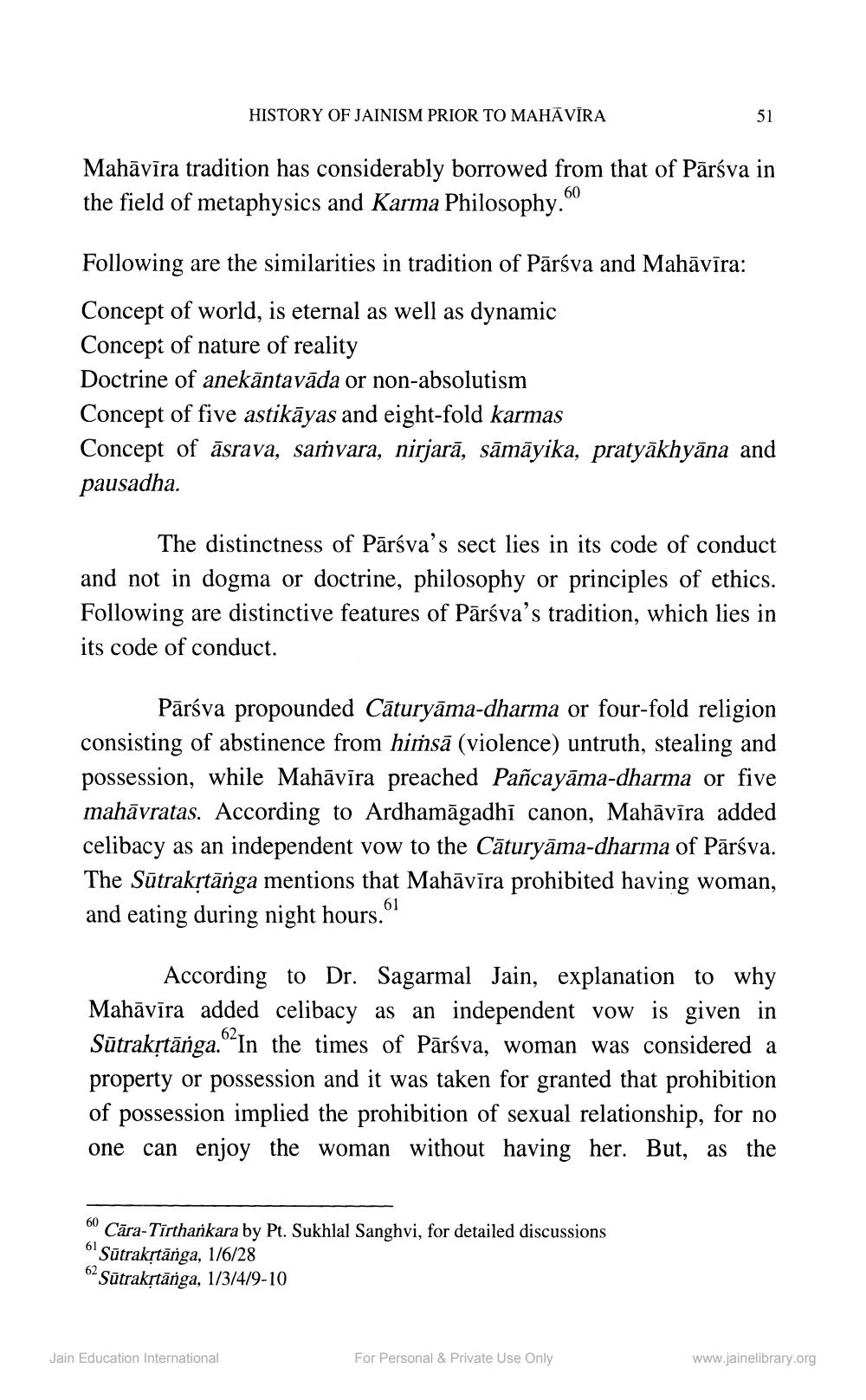________________
HISTORY OF JAINISM PRIOR TO MAHĀVĪRA
Mahāvīra tradition has considerably borrowed from that of Pārśva in the field of metaphysics and Karma Philosophy.
Following are the similarities in tradition of Pārśva and Mahāvīra: Concept of world, is eternal as well as dynamic Concept of nature of reality Doctrine of anekāntavāda or non-absolutism Concept of five astikāyas and eight-fold karmas Concept of asrava, samvara, nirjarā, sāmāyika, pratyākhyāna and pausadha.
The distinctness of Pārsva's sect lies in its code of conduct and not in dogma or doctrine, philosophy or principles of ethics. Following are distinctive features of Pārsva's tradition, which lies in its code of conduct.
Pārśva propounded Cāturyāma-dharma or four-fold religion consisting of abstinence from himsā (violence) untruth, stealing and possession, while Mahāvīra preached Pañcayāma-dharma or five mahāvratas. According to Ardhamāgadhi canon, Mahāvīra added celibacy as an independent vow to the Cāturyāma-dharma of Pārsva. The Sūtrakstānga mentions that Mahāvīra prohibited having woman, and eating during night hours.
According to Dr. Sagarmal Jain, explanation to why Mahāvīra added celibacy as an independent vow is given in Sūtrakstānga. In the times of Pārśva, woman was considered a property or possession and it was taken for granted that prohibition of possession implied the prohibition of sexual relationship, for no one can enjoy the woman without having her. But, as the
60 Cāra-Tīrtharikara by Pt. Sukhlal Sanghvi, for detailed discussions
Sūtrakrtānga, 1/6/28 "Sūtrakrtānga, 1/3/4/9-10
Jain Education International
For Personal & Private Use Only
www.jainelibrary.org




